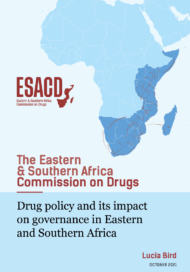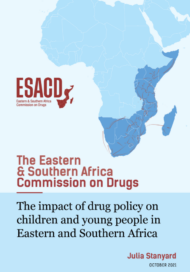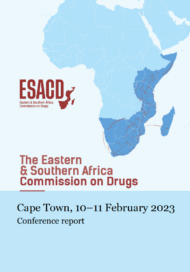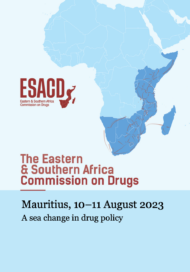Posted on 15 Oct 2021
Drug markets in Eastern and Southern Africa have pernicious impacts on governance systems in the region.
This paper tracks the primary effects of drug profits in shaping political processes, including elections and decision-making by elites. It also considers how drug markets penetrate and undermine state security and criminal justice infrastructure, and examines how this has an impact on national borders. Finally, it considers the impact of the profits from the drug market on the economic governance and financial markets of countries in the Eastern and Southern Africa region.
- The profitable drugs markets of Eastern and Southern Africa are having a devastating impact on governance.
- Corruption and illicit markets have a mutually reinforcing relationship: corruption facilitates the operations and growth of illicit markets, while criminal actors leverage illicit proceeds to entrench existing structures that help to facilitate corruption and drive the creation of new ones.
- Prohibition, the policy approach that underpins the creation of all criminal markets, remains the prevalent response to drug markets in the region.
- Drug profits constitute a key source of ‘unearned rents’ for elements of the political elite. Accessing these rents shifts elite incentives, driving policymakers to focus on predation, rent creation and capture, with devastating impacts on the provision of public services and the socio-economic development of states.
- Drug profits feed electoral campaigns, with indebtedness to criminal actors repaid through politicians’ facilitation of the drugs market.
- The extraction of rents by state bodies from drug trafficking has fundamentally transformed some institutions into enablers rather than disablers of the market.
- Drugs profits penetrate the criminal justice infrastructure, creating a broader climate of impunity.
- Drug-fuelled corruption compromises international borders, airports and seaports, damaging the territorial integrity of states and posing a threat to national security.
- The laundering of vast drug profits through financial systems warps the proper functioning of the private sector and undermines the integrity of financial systems.
- As drugs move through Eastern and Southern Africa, with an ever-increasing volume and diversity of supplies, their networks ensure the protection of the system that supports them, further eroding governance.




